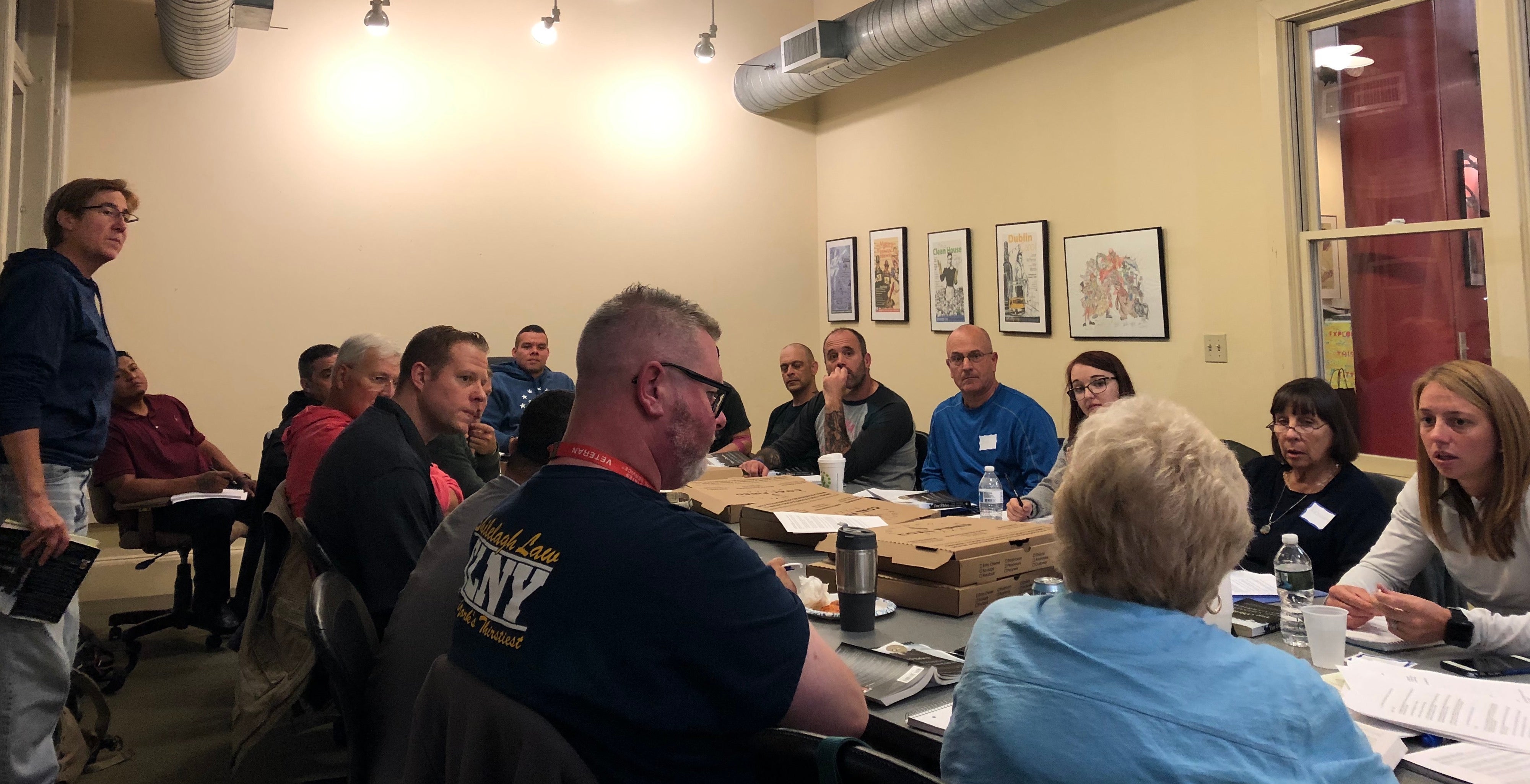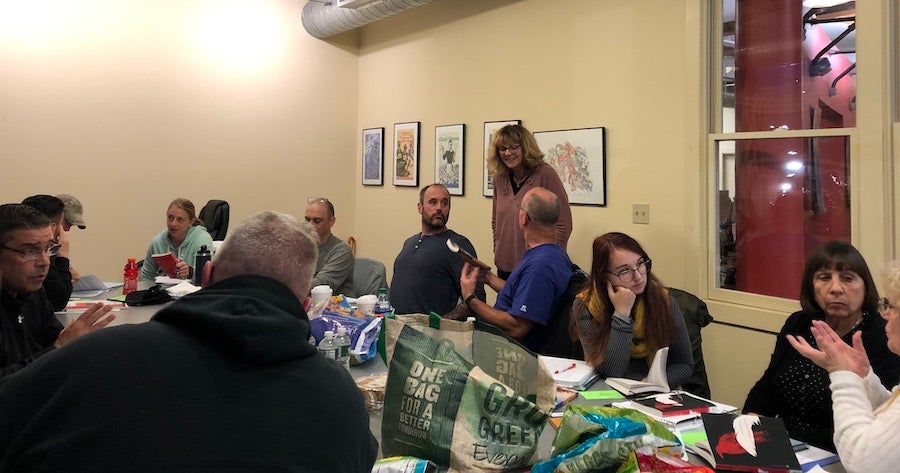The National Endowment for the Humanities (NEH) awarded a $99,000 grant to the Providence Clemente Veterans’ Initiative (PCVI) to support a dynamic program that serves veterans by providing opportunities to study history, public speaking, literature, philosophy, and art history. The program won the Rhode Island Council for the Humanities Innovation in the Humanities award in October 2020.
Collaborators to the PCVI program include Bard College, the University of Rhode Island’s College of Arts and Science, Trinity Repertory Company, and Operation Stand Down RI. Bard College offers participants transferrable college credit; Trinity Repertory Company serves as the host location and offers dramatic readings for particular lessons; the Rhode Island School of Design’s Professor Suzanne Scanlon provides art and art history lessons; and Operation Stand Down RI assists with recruitment. Mark Santow, Professor of History at the University of Massachusetts, Dartmouth, serves as director and the program’s History instructor. From the University of Rhode Island’s College of Arts and Sciences, Jen Riley, Dean of the College of Arts and Sciences and Professor of English, Cheryl Foster, Professor of Philosophy, and Kathleen Torrens, Professor of Communication Studies, offer coursework in literature, philosophy, and public speaking, respectively. The course is offered free of cost to participants, and is being held via Zoom this spring semester.
Contributing to the program through both financial and curricular support reflects the College of Arts and Sciences’ commitment to responding to community needs in Rhode Island. Further, supporting veterans through innovative, collaborative, and skill-building coursework reflects the College’s intentional efforts to foster interdisciplinary approaches to identifying, understanding, meeting, and solving the pressing and emerging challenges confronted by our communities. “We are modeling a way that the liberal arts can be part of the Land Grant tradition,” Dr. Foster says, “by offering an avenue into the humanities for the individuals participating.” The program makes the liberal arts accessible to community members while also showcasing the power of the humanities to shape lives and bring a community closer together.
“This program responds to studies that recognize that veterans are returning from conflict with Post-Traumatic Stress Disorder,” says Dr. Riley. Through a humanities-focused curriculum, veterans are exposed to a range of texts – from the Ancient Greeks to contemporary literature – that explore themes of war, conflict, and reconciliation through various practical and theoretical lenses. Through coursework and discussion, they are encouraged to reflect on their past experiences and explore ways to move forward. “Students walk away with the skills to pick up any piece of literature in the future,” Dr. Riley says, which is “a lifelong tool for making sense of the world.”
Veterans who have participated cite valuable academic experiences, long-lasting connections, and personal fulfillment. After completing the program, some have continued to work toward Associate or Bachelor degrees. For the professors who are involved, the experience is proving to be equally meaningful and rewarding. “Contributing to a population of military veterans is important to me,” Dr. Torrens says. “After one semester of hearing their stories and understanding their context on a deeper level, it has become even more important. Students walk away with deeper connections to community, family, and themselves.”
Ultimately, the outreach, value, and power of the humanities to inform one’s life and enhance one’s perspective remain guiding themes for the program. In this case, the participating professors all express feeling privileged for being able to facilitate meaningful connections between these outstanding individuals, their experiences serving our country, and their communities. “When veterans are faced with fragmentation, alienation, and a sense of not being tied into their communities [after they return from their service],” Dr. Foster says, “the humanities can be a talisman for figuring out the human experience.”
~Written by Aria Mia Loberti, Class of ’20, Philosophy, Communication Studies, and Political Science Major


